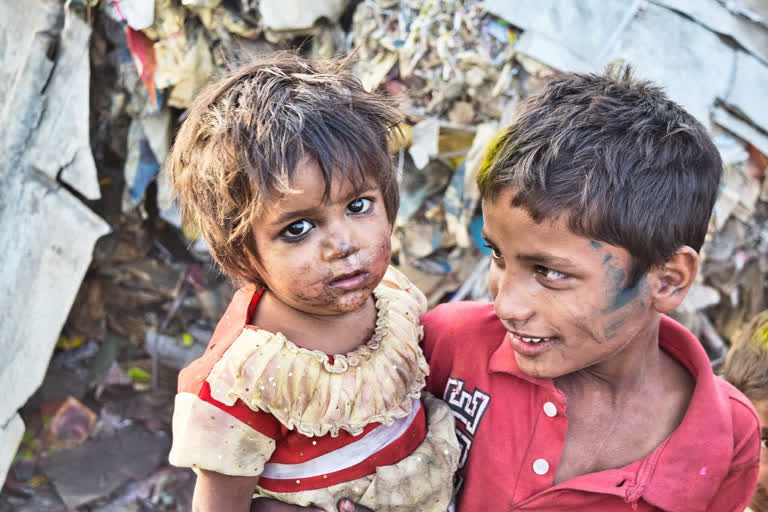New Delhi, Nov 26 PTI) Bihar, Jharkhand and Uttar Pradesh have emerged as the poorest states in India, according to Niti Aayog's Multidimensional Poverty Index (MPI).
As per the index, 51.91 per cent population of Bihar is poor, followed 42.16 per cent in Jharkhand, 37.79 per cent in Uttar Pradesh. While Madhya Pradesh (36.65 per cent) has been placed fourth in the index, Meghalaya (32.67 per cent) is at the fifth spot.
Kerala (0.71 per cent), Goa (3.76 per cent), Sikkim (3.82 per cent), Tamil Nadu (4.89 per cent) and Punjab (5.59 per cent) have registered the lowest poverty across India and are at the bottom of the index.
According to the report, India's national MPI measure uses the globally accepted and robust methodology developed by the Oxford Poverty and Human Development Initiative (OPHI) and the United Nations Development Programme (UNDP).
Importantly, as a measure of multidimensional poverty, it captures multiple and simultaneous deprivation faced by households, it added.
The report said, India's MPI has three equally weighted dimensions, health, education and standard of living - which are represented by 12 indicators namely nutrition, child and adolescent mortality, antenatal care, years of schooling, school attendance, cooking fuel, sanitation, drinking water, electricity, housing, assets and bank accounts.
Also Read: Shimla tops NITI urban index
The Sustainable Development Goals (SDG) framework, adopted by 193 countries in 2015, has redefined development policies, government priorities, and metrics for measuring development progress across the world.
The SDG framework, with 17 global goals and 169 targets, is significantly wider in scope and scale relative to the Millennium Development Goals (MDG), its predecessor.
Niti Aayog Vice Chairman Rajiv Kumar in his foreword said, "The development of the National Multidimensional Poverty Index of India is an important contribution towards instituting a public policy tool which monitors multidimensional poverty, informs evidence-based and focused interventions, thereby ensuring that no one is left behind."
Kumar further said this baseline report of India's first ever national MPI measure is based on the reference period of 2015-16 of the National Family Health Survey (NFHS).
The national MPI measure has been constructed by utilising 12 key components which cover areas such as health and nutrition, education and standard of living, he said.
Also Read: Economy expected to grow by 10pc or more in current fiscal: Niti VC
PTI



